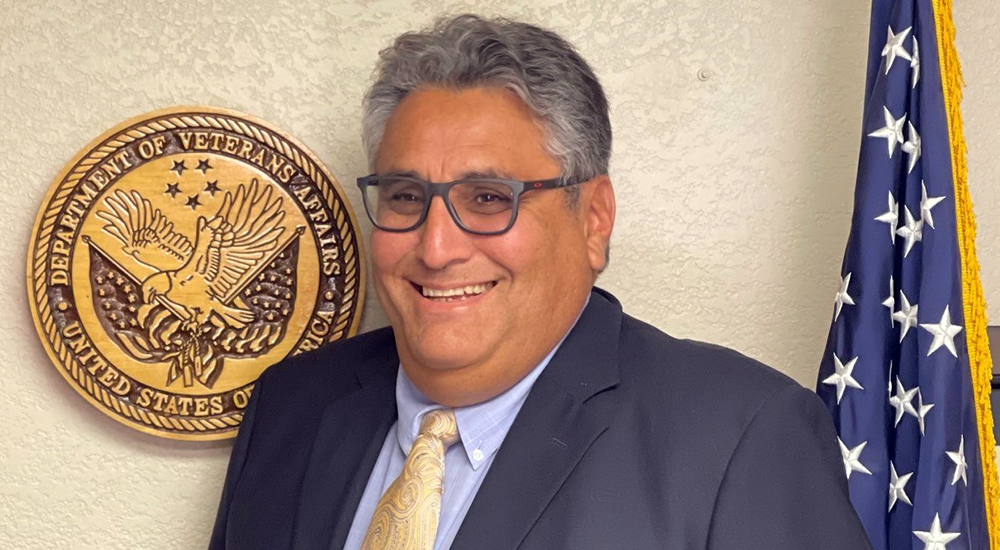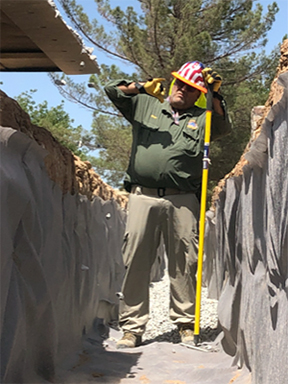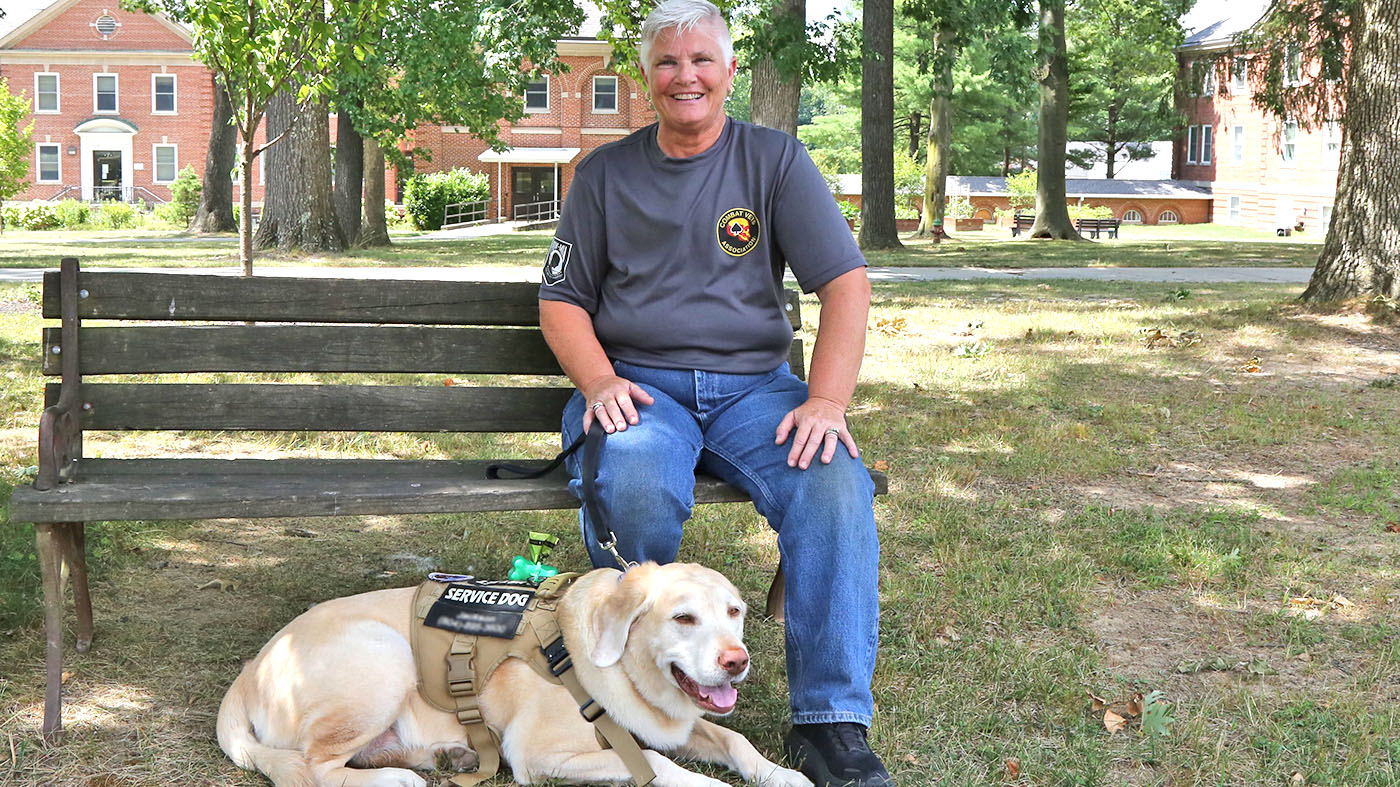Before Victor Vasquez became the cemetery director of Santa Fe and Fort Bayard National Cemeteries in New Mexico, he joined the Navy for adventure and travel. He enlisted as a hospital corpsman and was stationed with Marines most of the time.
After being injured and medically retired, he went back to school and earned a second degree in Computer Information Systems.
But Vasquez’s dreams for the future were crushed when he fell on hard times. Because of the recession, he lost his job as a software project manager.
In 2014, Vasquez went to the El Paso VA for medical care and was introduced to the coordinator of the Compensated Work Therapy (CWT) Program.
“I went in to see a doctor who recommended I talk to the CWT coordinator for readjustment help. I was going through a lot of turmoil,” said Vasquez. The VA program would ultimately change the direction of his life. “I met the CWT coordinator and he put me in the program.”
CWT is a VA clinical vocational rehabilitation program that provides vocational rehabilitation services. It has partnerships with business, industry and government agencies to provide Veteran candidates for employment. And it provides employment support for both Veterans and employers.
Having met the qualifications, Vasquez was put to work
“I was placed at the clinic cleaning bathrooms and trash cans, Vazquez said. “I did that for about maybe two or three months and then they transferred me to the Fort Bliss National Cemetery.”
While in the program, Vasquez was given more than just a place to work. He was also provided resources and support to be successful in the workforce.
“They helped me with resumes, how to tailor a resume for the job you are applying for and taught me interview skills,” he added. “They gave me the skill sets I needed to cope with stress and anxiety and the day-to-day life skills sometimes you take for granted and then forget.”
Moving on up
At the cemetery, Vasquez worked for about eight-months until a full-time caretaker position opened. He applied for it and was hired. After about a year, he was able to move into the cemetery foreman job and never looked back.
“I’ve been with the National Cemetery Administration now for almost eight years and it was maybe in my fifth year that I applied for the cemetery director position,” he said. “I never thought I would be working at a National Cemetery. But once I got there, just like at CWT, I really liked it. I did headstone settings, washing headstones, general groundskeeping. And I learned how to do interments and just about everything else. I found that this was my calling and I really enjoyed it.”
Vasquez says he was successful because of the effort he put into his work, his dedication to learning everything he could about the job and his inner drive to push himself.
A way to show people what you can do
“If a Veteran goes into the CWT program with the idea that it’s not an entitlement, but it’s a way to get your foot in the door by showing people what you can do, the program can really help them,” Vazquez said. “It’s a great program. It changed my life and led me to where I am today.”
With more than 52,000 Veterans enrolled annually in VA’s CWT Program, the goal is to find employment opportunities for each participant that match their skills, abilities and preferences.
“Going into the CWT program, they’re going to test you.” he said. “I’ll be honest. I had two degrees and learning how to clean toilets and throwing trash, that was a humbling experience for me. It showed me it’s about service, doing something, giving back something. I learned a whole new industry and now I’m running two cemeteries and proudly caring for our nation’s heroes.”
CWT programs are located at all VA medical centers. Learn more here.
Topics in this story
More Stories
Combat Veteran faces the traumatic events of her PTSD during prolonged exposure therapy and looks forward to the days to come.
Bob Jesse Award celebrates the achievements of a VA employee and a team or department that exemplifies innovative practices within VA.
The Medical Foster Home program offers Veterans an alternative to nursing homes.








Congratulations Sir! My father was a caretaker for over 20 years. My brother and I started at the age of 14 helping him out and from time to time when you need more help we will come back home and help him out. My dad and my brother passed on now. They are both buried at Garrison Forest cemetery Owings Mills Maryland. A VA cemetery and to know veterans like you are taking care of a veterans like them I thank you for your service in the military and to our fallen.
Thank you for sharing this veteran’s uplifting story!